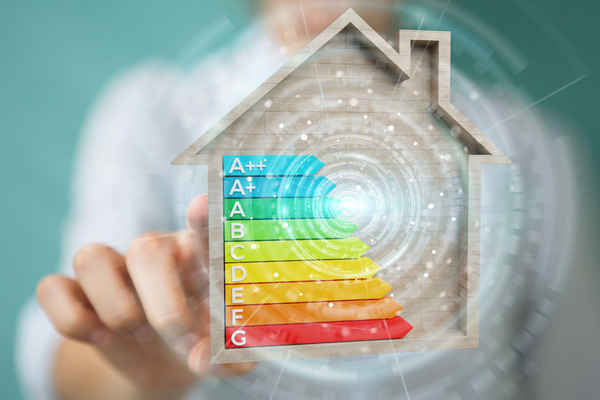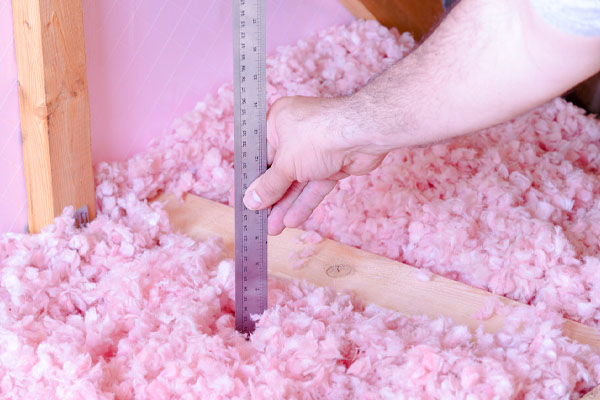What Are 3 Ways That You Can Tell If Your Heater Is Energy Efficient?

When temperatures drop, the heating system in your home plays an essential role in helping to maintain a comfortable indoor environment. Your heating system keeps your home warm, protecting your home against plumbing problems, such as pipes freezing and bursting. Also, your heating system protects your family from illnesses caused by the cold. Of course, a good heating system is energy-efficient, dependable, and offers quiet operation. For example, an energy efficient heater can help reduce heating costs, effectively distribute heat throughout your home, and reduce expensive maintenance costs. The three points below can help you determine if your home heating system is efficient. Likewise, this article provides important tips on improving heating system efficiency.
Is Your Heating System Energy-Efficient?
Contents
The first thing you need to determine when preparing to purchase a heating system is the number of square feet in your home. This is essential in helping you to choose a properly sized heater with the necessary capacity for your home. Generally, according to the DOE (US Department of Energy), older heating systems achieve between 56% and 70% of energy efficiency; however, a newer system can bring efficiency up to 98.5%. Keep in mind, maintenance is important, a heating system might lose up to 5% efficiency per year.
The three factors below can help you determine if you have an energy-efficient heating system.
Age of Your Heating System
The typical life expectancy of a residential heating system is between 15 and 20 years. Proper HVAC maintenance can certainly help ensure a heating system remains efficient for as long as possible, at some point, wear and tear from regular use will eventually take its toll. Looking at the age of a heating system can be a big clue as to its energy efficiency. Basically, an older system is usually less efficient than a newer one.
If you’re having trouble determining the efficiency of your heater, even once you know how old it is, a certified HVAC professional can help.
Energy Bills

There can be fluctuations in your energy bills, depending on the heating requirements of each season. However, your annual energy costs should not vary much from one year to another, unless the price per unit of energy has increased. With all other factors remaining constant, you can compare energy bills from years past and determine if there has been an unexpected rise in overall heating costs.
If you have energy bills that go up, it might be an indication that your heating system is losing efficiency. This is a result of a heater that is operating less efficiently will have to work longer and harder to adequately heat your home. This means higher energy consumption resulting in an increase in energy bills.
AFUE Rating
AFUE, Annual Fuel Utilization Efficiency, is a rating given to heaters in order to let consumers know its efficiency. In order to determine a heaters AFUE rating, the heat output is divided by the input or fuel consumed. For example, an AFUE rating of 95% would mean that the heater is capable of converting 95% of the input fuel into heat while dissipating or losing only 5%.
Generally, heating manufacturers will place a label on the heating system indicating the unit’s AFUE rating. This makes it easy to simply check the label, if you have one, and determine the energy efficiency of your system. If you can’t find a label, you might be able to look up the serial number or model of your heater on the manufacturer’s website. When you find the AFUE rating for your heater, you can easily tell whether it is energy efficient.
Improving Your Heater’s Efficiency

A heating system with low efficiency can lower your home’s comfort on cold days while increasing energy bills and risking more frequent breakdowns. A heater that is less efficient can also increase your home’s carbon footprint, depending on what type of fuel you use. Fortunately, these tips can help you improve the efficiency of your heating system.
- Regularly Clean or Change HVAC Filters: If your HVAC filter is clogged, your furnace will need to work harder in order to draw air through the filter; so, clean filters regularly and make sure they are changed as needed.
- Home Insulation: When your home is properly insulated, you’ll be able to retain more of the heat that is put out by your heating system, lowering the amount of work your heater will need to do.
- Schedule an Annual HVAC Inspection: Regular maintenance on your heating system can help improve its efficiency. That said, choose a reputable HVAC contractor to perform routine inspections and handle heating issues for maximum efficiency.
- Make Use of a Programmable Thermostat: The use of a programmable thermostat allows you to set the thermostat to self-adjust according to your specific heating needs. This helps ensure your furnace only runs when necessary and uses fuel according to your heating needs.
Why Replacing an Outdated Heating System is Important
When the time comes and regular maintenance can no longer impact the efficiency of your heater, you might want to consider replacing it. When you replace an older heater with a more modern heating unit, you’ll be able to take advantage of the following benefits.
- Avoid Frequent Heating System Breakdowns: An older heater tends to have problems far more often due to natural wear and tear over the years. However, when you have a new heater, you can reduce breakdowns and save on those expensive repair bills.
- Increased Indoor Comfort: With a new high-efficiency heater, you’ll notice more even heating throughout your home. On cold days, adequate heating means improved indoor comfort, something older heating might not be able to deliver.
- Reduce Heating Costs: A high-efficiency heater typically means lower energy bills, something that is often guaranteed with a new heater.
Conclusion
You can determine if you have an energy-efficient heating system by checking the age of the system, its AFUE rating, and by looking at your energy bills. Even when your heating system is already energy-efficient, an inspection and professional maintenance by a qualified HVAC professional can often improve efficiency. Sometimes an older heater might need to be replaced.
Give Point Bay Fuel a Call For Any of Your HVAC Needs

Point Bay Fuel offers quality heating and cooling service in Ocean and Monmouth County, New Jersey. Our technicians are certified and trained to provide excellent HVAC installations, replacements, repairs, and tune-ups. When you want your HVAC system to run its best, our experienced techs have the expertise and knowledge to provide the correct service.
Point Bay Fuel guarantees competitive pricing for HVAC service. Our regular maintenance service can increase the efficiency of your equipment while improving indoor comfort and reducing heating and cooling bills. If you need a new heating system or repairs on your current system, we’re here to help while keeping your budget in mind. All of the work we perform comes with a guarantee of satisfaction. Give Point Bay Fuel a call today and schedule your service appointment. We offer no-obligation, in-home estimates.
Contact us now by calling (732) 349-5059 to speak to one of our home comfort specialists!
